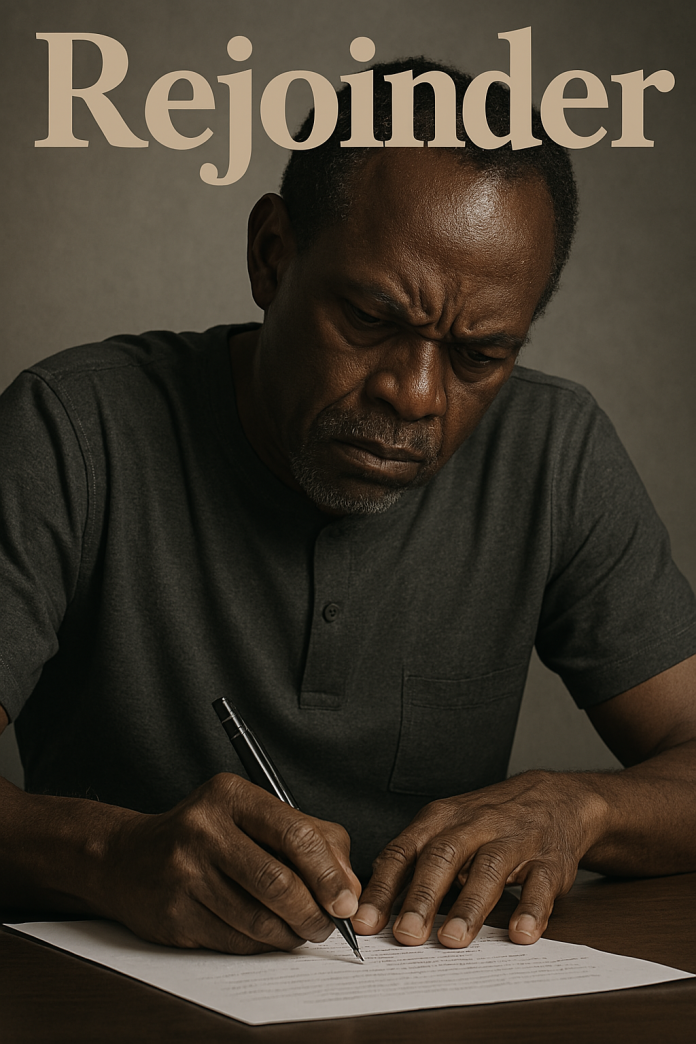By Idris Muhammed Abdullahi
The piece titled “In the Belly of Edo Forest” by Femi Adeoti is a textbook display of ethnocentric prejudice, marinated in sweeping generalizations and simmering with contempt for a particular demographic. It trades in dangerous stereotypes, painting an entire ethnic group with the broad brush of criminality while sidestepping the intricate realities and root causes of insecurity in Nigeria. This narrative is not only intellectually shallow—it is deeply corrosive to the fragile threads that hold our national unity together.
A False Narrative Rooted in Bigotry
Adeoti’s piece is laced with a caustic tone, dripping with disdain and reveling in an entrenched worldview that refuses to acknowledge facts beyond its narrow lens. The so-called “hunters” from Kano are instantly branded terrorists, with no effort at verification, investigation, or nuance. This rush to judgment completely abandons the core tenets of justice—chiefly, the presumption of innocence until guilt is proven through due process.
To argue that Northerners cannot traverse Southern forests without nefarious intent is as absurd as it is inflammatory. Hunting is a cultural practice found across Nigeria’s regions and ethnic groups. The claim that no legitimate hunting could occur in the mangrove-dense zones of Rivers or Edo betrays a profound ignorance of the adaptability of traditional hunting methods to varied ecological terrains. Adeoti’s extrapolation of isolated criminal incidents to indict an entire group is an analytical fallacy unworthy of serious discourse.
The Fiction of Vigilante Justice
Even more disturbing is the author’s enthusiastic endorsement of extrajudicial killings, cloaked in the flimsy veil of “credible intelligence” and “self-defense.” He speaks of the killings with a voyeuristic certainty—as though he were a firsthand witness—which raises questions about the authenticity and intent behind the narrative.
In any civilized society, suspicion—no matter how strong—cannot substitute for due process. If we normalize jungle justice under the excuse of communal protection, what prevents other regions from adopting the same mob tactics against perceived outsiders? The vigilantism celebrated in the article is not justice; it is lawlessness, a descent into barbarism where mere accusation becomes execution.
The Myth of Unilateral Victimhood
Adeoti’s portrayal of the Fulani as unilateral aggressors and Southern communities as perpetual victims is not only misleading—it is dangerous. Criminality has no ethnic allegiance. Banditry, kidnapping, and violent crimes are national scourges committed by individuals from every region. Citing Peter Ogedengbe’s murder without acknowledging the retaliatory and often indiscriminate violence meted out against innocent Northerners—traders, herders, and travelers—exposes a deeply selective memory.
Where is the outrage for Northern victims of ethnic violence? Do their lives not matter simply because they do not fit a preferred victim narrative?
Governance and the Weaponization of Ethnicity
The attack on Governor Monday Okpebholo for extending condolences and compensation to bereaved families from the North underscores the dangerous politicization of ethnicity. Every citizen, regardless of origin, is entitled to justice and protection. The expectation that Northern leaders should care for their own while Southern leaders remain indifferent to national responsibility is both irrational and divisive.
Governance is not a tribal affair. Justice must be blind to ethnicity, or it is no justice at all.
A Call for Intellectual Honesty
Adeoti’s column is not an analysis—it is an incendiary manifesto. It exploits legitimate fears and security challenges to fan the flames of ethnic hatred. By justifying mass killings under the guise of communal self-defense, the article abandons the principles of law and order and walks Nigeria toward a perilous future.
To build a safer Nigeria, we must reject these toxic narratives that demonize entire populations. Criminals must be identified and prosecuted individually—not ethnically. Real security solutions come from cooperation, intelligence sharing, and the equitable application of justice—not from tribal scapegoating.
Let us call this what it is: propaganda, not journalism.
Idris, a political analyst, also serves as a Tax Evasion, Asset Recovery, and Proceeds of Crime Investigator for Nigeria
Share your story or advertise with us: Whatsapp: +2347068606071 Email: info@newspotng.com

















